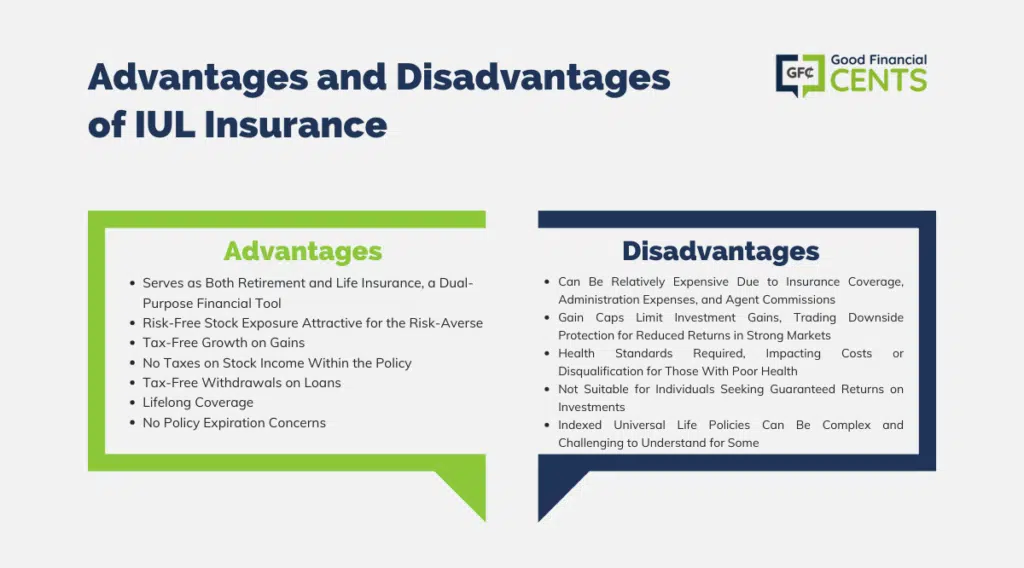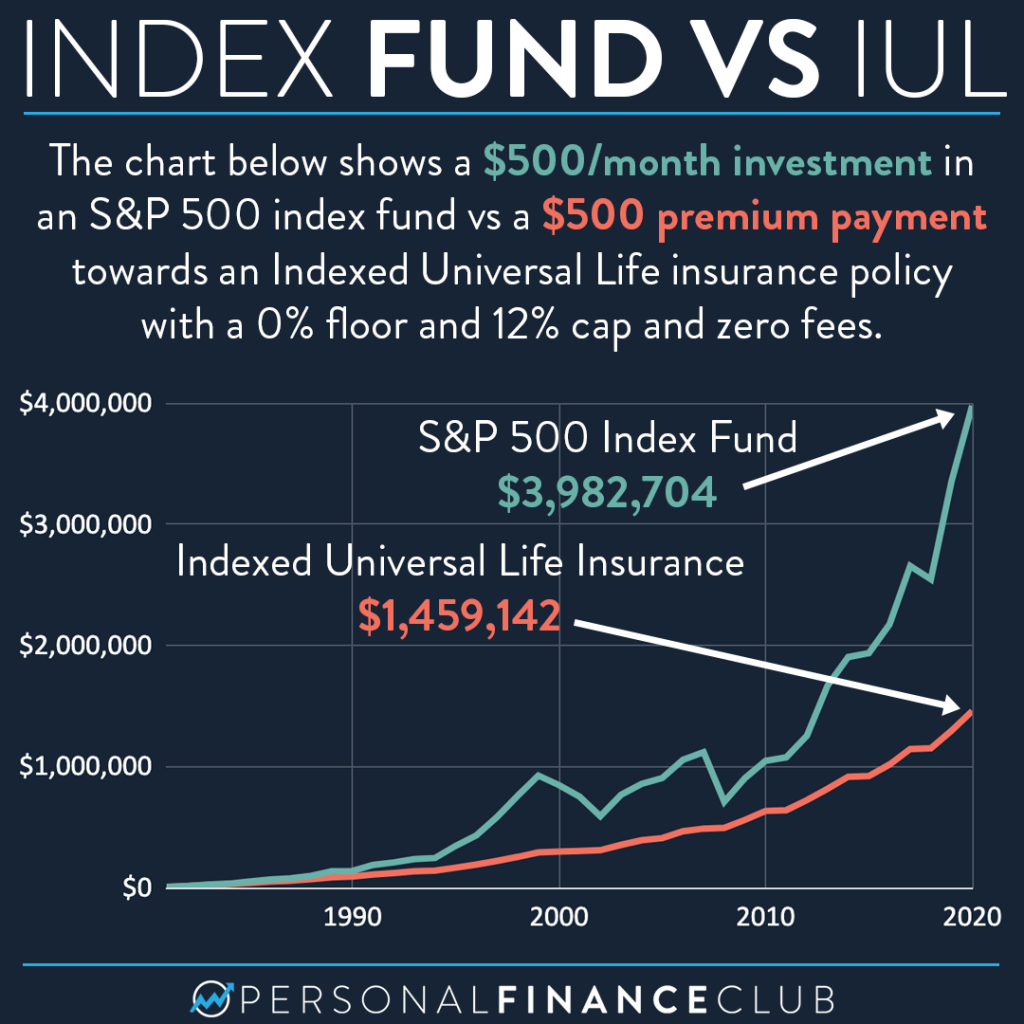All Categories
Featured
Table of Contents
Do they compare the IUL to something like the Lead Total Stock Market Fund Admiral Shares with no load, an expenditure proportion (EMERGENCY ROOM) of 5 basis factors, a turnover proportion of 4.3%, and an exceptional tax-efficient document of distributions? No, they contrast it to some awful actively taken care of fund with an 8% tons, a 2% EMERGENCY ROOM, an 80% turnover ratio, and a horrible record of short-term resources gain distributions.
Shared funds commonly make yearly taxed distributions to fund proprietors, even when the worth of their fund has gone down in value. Mutual funds not just require earnings coverage (and the resulting yearly taxation) when the common fund is going up in worth, but can additionally enforce earnings taxes in a year when the fund has decreased in value.
You can tax-manage the fund, collecting losses and gains in order to reduce taxed distributions to the capitalists, however that isn't somehow going to alter the reported return of the fund. The ownership of mutual funds may call for the mutual fund owner to pay approximated tax obligations (universal indexed life insurance).

IULs are simple to place to make sure that, at the owner's fatality, the recipient is not subject to either revenue or inheritance tax. The exact same tax obligation decrease techniques do not work virtually too with shared funds. There are countless, typically costly, tax obligation traps related to the timed trading of shared fund shares, catches that do not relate to indexed life insurance policy.
Opportunities aren't really high that you're mosting likely to go through the AMT because of your common fund circulations if you aren't without them. The remainder of this one is half-truths at best. While it is real that there is no earnings tax obligation due to your beneficiaries when they inherit the proceeds of your IUL policy, it is likewise real that there is no income tax obligation due to your heirs when they acquire a mutual fund in a taxed account from you.
What Is Indexed Universal Life Insurance
There are much better ways to stay clear of estate tax obligation concerns than purchasing investments with low returns. Shared funds might trigger earnings tax of Social Protection advantages.

The growth within the IUL is tax-deferred and might be taken as free of tax income using fundings. The plan proprietor (vs. the common fund manager) is in control of his/her reportable income, therefore allowing them to lower and even remove the taxes of their Social Safety benefits. This set is terrific.
Here's one more very little problem. It's real if you purchase a common fund for claim $10 per share simply prior to the distribution day, and it disperses a $0.50 distribution, you are after that mosting likely to owe tax obligations (probably 7-10 cents per share) in spite of the fact that you haven't yet had any type of gains.
But ultimately, it's actually regarding the after-tax return, not just how much you pay in taxes. You are mosting likely to pay more in tax obligations by utilizing a taxable account than if you get life insurance policy. However you're also most likely mosting likely to have more money after paying those taxes. The record-keeping requirements for owning mutual funds are dramatically more intricate.
With an IUL, one's documents are kept by the insurer, copies of yearly declarations are sent by mail to the owner, and distributions (if any type of) are amounted to and reported at year end. This is likewise sort of silly. Naturally you need to keep your tax obligation records in instance of an audit.
Ul Mutual Life Insurance
All you need to do is push the paper right into your tax obligation folder when it turns up in the mail. Hardly a factor to buy life insurance policy. It's like this man has actually never ever bought a taxed account or something. Common funds are typically component of a decedent's probated estate.
Furthermore, they undergo the hold-ups and expenditures of probate. The proceeds of the IUL policy, on the other hand, is always a non-probate distribution that passes outside of probate straight to one's called recipients, and is therefore exempt to one's posthumous lenders, unwanted public disclosure, or comparable hold-ups and costs.
We covered this one under # 7, but just to summarize, if you have a taxed shared fund account, you should place it in a revocable count on (and even much easier, make use of the Transfer on Fatality designation) to avoid probate. Medicaid incompetency and life time income. An IUL can supply their proprietors with a stream of revenue for their whole lifetime, no matter the length of time they live.

This is beneficial when arranging one's affairs, and converting assets to earnings prior to a retirement home arrest. Common funds can not be converted in a similar way, and are generally considered countable Medicaid possessions. This is another stupid one promoting that inadequate individuals (you recognize, the ones that require Medicaid, a federal government program for the inadequate, to spend for their assisted living home) should make use of IUL rather of shared funds.
New York Life Iul
And life insurance coverage looks horrible when compared relatively against a pension. Second, individuals who have money to purchase IUL above and past their pension are mosting likely to have to be horrible at handling cash in order to ever get Medicaid to pay for their nursing home expenses.
Chronic and terminal disease motorcyclist. All plans will certainly permit an owner's easy accessibility to cash from their plan, frequently waiving any kind of surrender fines when such people experience a significant ailment, require at-home care, or become restricted to an assisted living home. Common funds do not supply a similar waiver when contingent deferred sales costs still relate to a shared fund account whose owner requires to offer some shares to money the prices of such a remain.
New York Life Indexed Universal Life Insurance
Yet you reach pay more for that advantage (motorcyclist) with an insurance coverage. What a large amount! Indexed universal life insurance policy offers fatality advantages to the beneficiaries of the IUL owners, and neither the proprietor neither the beneficiary can ever lose money due to a down market. Shared funds provide no such guarantees or death advantages of any kind.
Now, ask yourself, do you in fact require or desire a survivor benefit? I definitely do not require one after I reach economic self-reliance. Do I want one? I suppose if it were cheap sufficient. Certainly, it isn't low-cost. Typically, a buyer of life insurance policy spends for truth expense of the life insurance policy advantage, plus the prices of the policy, plus the earnings of the insurance company.
Is Universal Life Whole Life
I'm not completely sure why Mr. Morais included the entire "you can not lose money" once again right here as it was covered fairly well in # 1. He simply wanted to duplicate the ideal marketing factor for these things I intend. Again, you don't lose nominal dollars, however you can shed genuine bucks, in addition to face serious possibility price as a result of reduced returns.

An indexed global life insurance plan proprietor may trade their policy for a completely various plan without setting off earnings taxes. A mutual fund proprietor can stagnate funds from one mutual fund business to one more without offering his shares at the previous (therefore activating a taxed occasion), and repurchasing brand-new shares at the latter, frequently subject to sales charges at both.
While it holds true that you can trade one insurance coverage for an additional, the reason that individuals do this is that the initial one is such a terrible plan that even after purchasing a brand-new one and going via the very early, unfavorable return years, you'll still come out ahead. If they were offered the best plan the initial time, they should not have any kind of desire to ever before exchange it and undergo the very early, unfavorable return years once again.
Latest Posts
The Cash Value In An Indexed Life Insurance Policy
Guaranteed Universal Life Insurance Cost
Veterans Universal Life Insurance